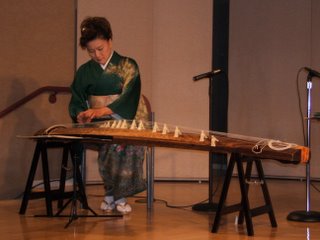What's the roots for troubled Sino-Japanese relations? How to solve it? What the US should do?
Akira Chiba, Ministry of Foreign Affairs (MOFA), Dr.Bojiang Yang, Chinese scholar, and Mr. Randy Schriver, partner of Armitage International discussed the topic on Feb. 13th at a AEI(American Enterprise Institute) event.
Mr. Chiba on Yasukuni Visits
From 1978 to 1985, three Japanese PM visited Yasukuni Shrine, and the visits got no protests from outside of Japan.
April, 1985, Japanese Prime Minister Nakasone visited Yasukuni at 8:45am, and then had lunch with Chinese leader Peng Zheng, and Peng gave a speech praising Japanese’s foods and bilateral relations
Only until August 1985, anti- Japan protest suddenly emerged.
“there is no link between shrine visit and Japanese militarism”
5.75% of total expenditure during the time that frequent visits are made
6.8% average during the 15 years since PM Nakasone decided not to visit the shrine
6.02% during the Koizumi's fiver visits
Towards the end, Chiba recalled a moment in China. When he finished a speech, one 80 year old Chinese senior graphed his hands, and said, “Your guys are just like us”, and Chiba said, that is a moment of reconciliation.
Dr. Yang first agree,
there are certain difference between Chinese and Japanese.
Chinese character also contributes to it
Secondly, she suggested genuine exchange between the two societies.
“今までは国交30年 これから社交30年” (after 30 years of normalization in bilateral relations, it is a time for normalization in two societies)
But he pointed out
1.Yasukuni doesen’t equal to Shinto. It is special for being a place with the war criminals
2.Koizumi's visit can't be equated to Nakasone's visit. Nakasone's is admired as a real statesman, he maintained a close relations with US president Ronald Reagan, as well as CCP secretary Hu Yaobang. Koizumi is simply “disappointing.”
He made three points,
1.put Sino-japan relatins into a profound background
2. Some opportunities after LDP’s election. (Hope is relied on a Post-Koizumi figure who will do something to improve the relations)
3.yasukuni is not roots, but rather a reflection of the troubled relations. The Roots lies in Strategic alignment and realignment. Or, a balance of power.
Mr. Shriver presents his view on the US's role:
1.Don’t think US likes to see the tension rising between Japan and China
2.Don’t want to pressure and persuade Japan solely, US has to look carefully where its interest lies and act accordingly
3.the assumption of a equal playing field betweem the US and the two East Asian rising powers is not a case. Even Sino-US relations are improving, As US’s strategic partner and trade alliance, Japan-US relations can’t be compensated
US needs to desegregate the problem
The US needs to stay out of the history issues.
US should meddle in the following,
1. Miscalculation and miscommunication between Chinese military and Japanese counterpart can get the US facing a crisis
2. The US should continue to pursue and continue to strengthen alliance with Japan. Support Japan as a normal country
 Recently there has been one event after another on Japan, talks about US-Japan alliance, rise of China, tense Sino-Japan relations and history issues including Mr. Koizumi's Yasukuni visits.
Recently there has been one event after another on Japan, talks about US-Japan alliance, rise of China, tense Sino-Japan relations and history issues including Mr. Koizumi's Yasukuni visits. 










